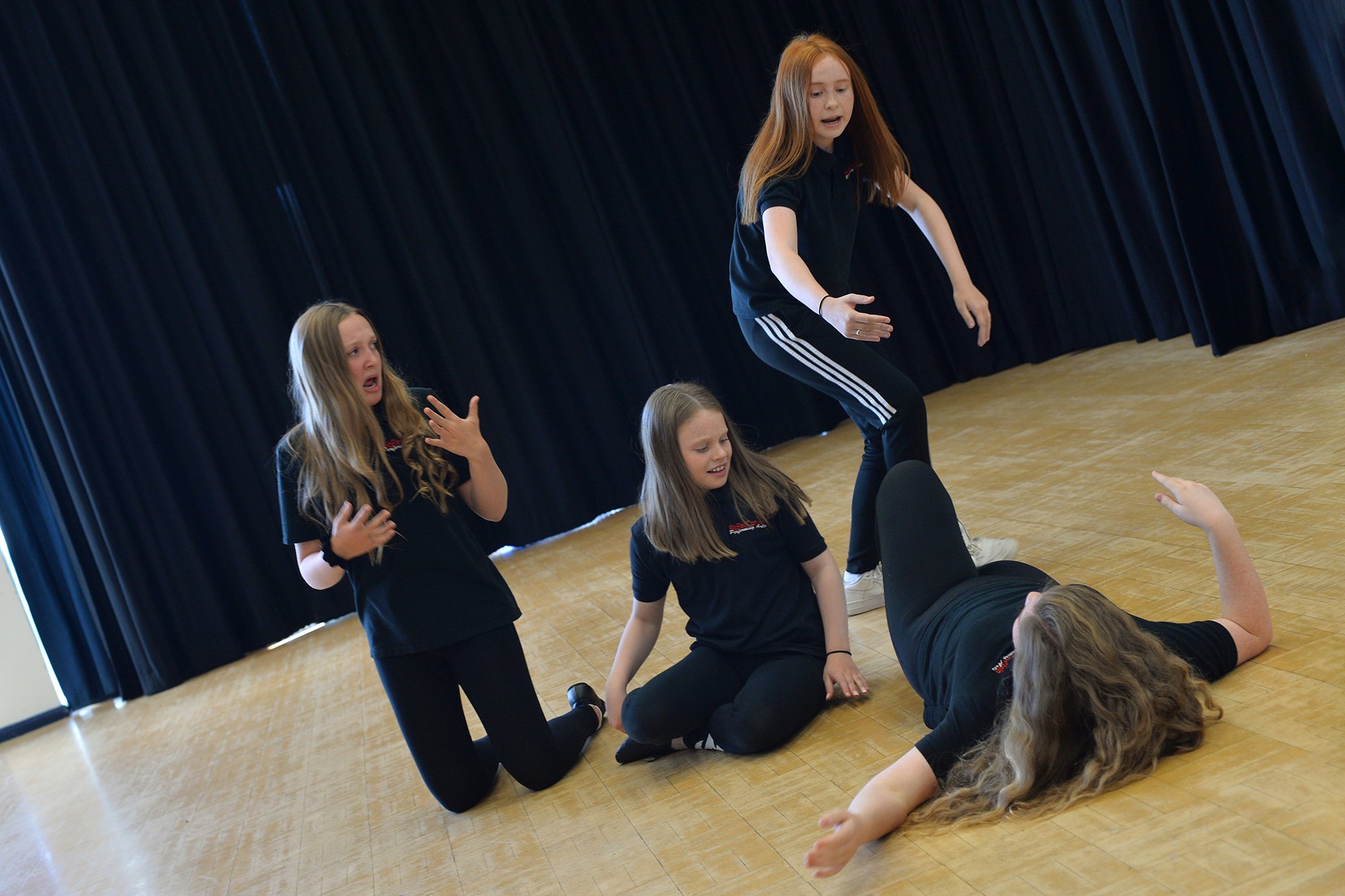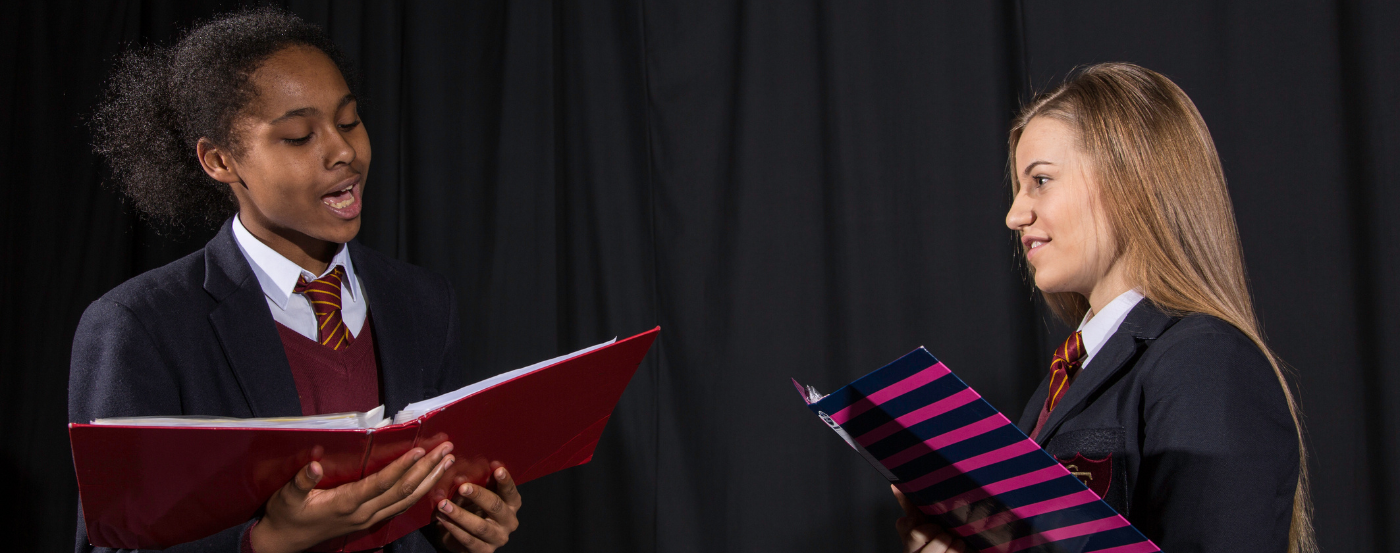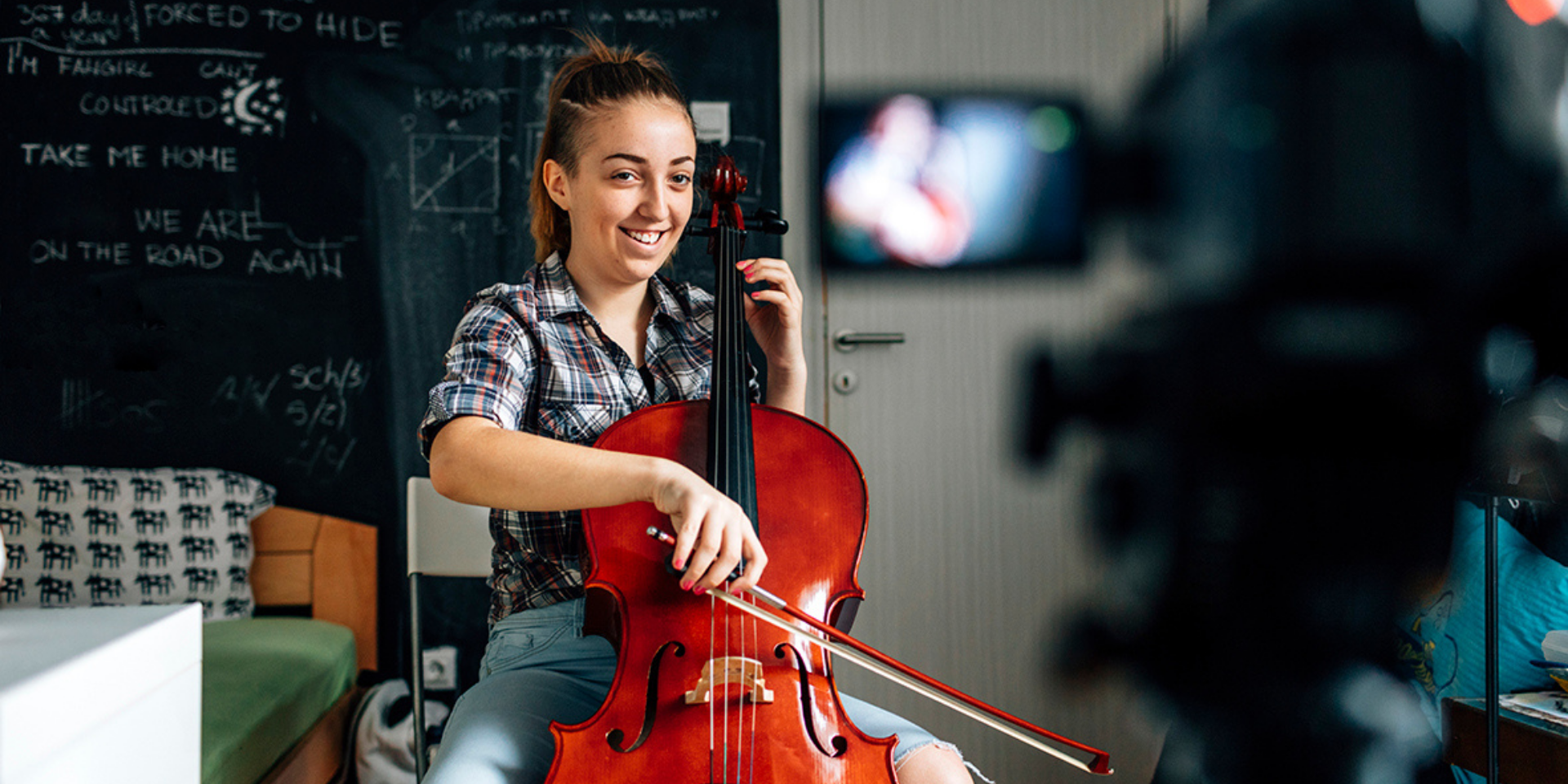
Trinity Drama’s digital offer
BY: Nicola King
31 July 2025
Trinity College London has an extensive digital exam offer, and the majority of our suite of drama exams are available for digital assessment. In this blog we will explore what exams are available and what you need to know before entering.
For all exams, whether you are entering for face-to-face or digital assessment, the syllabus and tasks are the same. All exams are marked in the same way as they would be in face-to-face exams, and our digital exams are regulated and recognised in exactly the same way as our face-to-face exams. Our digital Solo and Pair exams also carry the same UCAS points at Grades 6-8.
Digital grades, diplomas, and certificates
The following exams can be assessed through entering a recording of all exam tasks:
- Acting- Solo, Pair, Group and In Production exams from Initial to Grade 8
- Musical Theatre- Solo, Pair, Group and In Production exams from Initial to Grade 8
- Performance Arts- Solo, Pair, Group and In Production exams from Initial to Grade 8
- Speech & Drama- Solo exams from Initial to Grade 8 (Pair and Group exams are not available for the Speech and Drama syllabus)
- Trinity Stars (Bronze, Silver and Gold)
- ATCL Performance diplomas (Our LTCL Performance and Teaching Diplomas are only available face-to-face)
All our digital grades, diplomas, and certificates need to be filmed as one continuous performance of ALL items. This means that the recording shouldn’t be stopped or paused in between pieces or tasks, if candidates need to reposition or reset, the cameras should be left to record this. All tasks should be performed in the order they are listed in the syllabus, and this also applies to reflection questions.
When it comes to recording make sure that the candidate’s whole body is in view and they stay in shot for the entire performance. Choose a quiet room without disruptions or background noise, and make sure you’re not standing in front of a light source which will turn you into a silhouette. Teachers can facilitate the recording of the exam by, for example, asking the reflection questions for the candidate to respond to, or playing music if needed.
The maximum recommended size for your video file is 1GB, so turn off HD settings, or use the lowest available setting. Remember the examiner is not assessing the quality of the filming but the performances of the candidates. You may also want to think about filming multiple takes, so that you can upload the best one, this can be particularly useful when preparing for group exams. We would recommend filming the exam and then booking once this is done. This way the 28-day submission window can be used for uploading the video and other required materials.
Communication Skills via online delivery
Unlike our other graded exams, Communications Skills is conducted via Video Conferencing. This is because the conversational nature of this exam requires a live interaction between examiner and candidate that could not be assessed through a recorded exam.
Only the examiner and candidate should be in the exam room during an exam. If the presentation requires technology to be set up, then another person is allowed in the room for that purpose and should leave after the task is complete. The candidate can bring notes into the exam, but these should be on cards; the candidate should not upload their notes onto the computer and should not be reading from them as if they were a script.
For exams via video conference, the candidate should ensure that photos or posters can be easily viewed by the examiner (complex designs and small text may be hard to read). Candidates using mobile phones to play material must ensure notifications and calls are muted throughout the exam. The candidate should notify the centre representative in advance of their exam that they wish to use digital visual aids in their exam.
Communication Skills via VC exams must be taken in a registered centre and cannot be taken from home. For candidates who are entering through the public route, rather than a private centre, this means that face-to-face exams at a drama public centre are the best entry method. Communication Skills via VC exams are only available for Solo candidates, not Groups.
Acting for Screen
Our Acting for Screen exams are digital only, meaning there is no face-to-face assessment method, and they are recorded and submitted in a similar format to digital graded exams, however, there are a few key differences:
Each task is filmed and uploaded separately, and candidates are asked to film multiple takes of each task and review these before selecting the takes they wish to submit.
There a very specific filming instructions for each task, including what size shot should be used, and where the candidates eyeline should be, and these must be followed.
Videos should be recorded in a bright, even light, against a plain background with no distracting objects or images on the wall. All tasks should be recorded in landscape.
We hope you find this overview of our digital offer helpful, for more information on our specifications, and how to upload a digital exam, take a look at our series of webinars. If you have any questions get in touch on support@trinitycollege.com




Comments & Replies